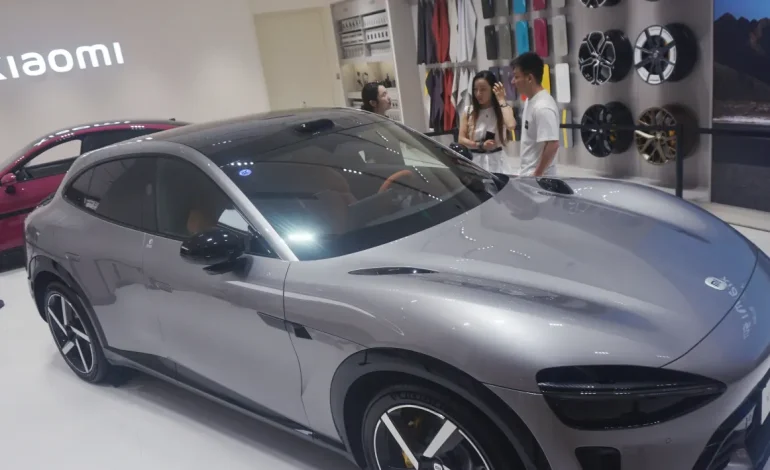Chinese technology company Xiaomi has entered the next phase of its electric vehicle strategy by unveiling the YU7, a luxury SUV priced below Tesla’s Model Y, further intensifying a growing price war in China’s EV market, CNBC reports.
On Thursday, Xiaomi CEO Lei Jun announced that the YU7 will start at 253,500 yuan (approximately $35,322), undercutting the starting price of Tesla’s Model Y in China by 10,000 yuan. The move follows Xiaomi’s earlier pricing strategy with its SU7 sedan, which also launched at a price lower than Tesla’s Model 3.
The YU7, first revealed in May, comes with a stated range of up to 760 kilometers (472 miles) per charge — surpassing Tesla’s extended-range Model Y, which offers a 719-kilometer range. The SUV includes driver-assist features, with its most advanced version powered by Nvidia’s Thor chip. However, Xiaomi acknowledged that its system does not yet match Tesla’s in driver-assistance capability.
Pre-sales for the YU7 began on Thursday evening, and within just three minutes, Xiaomi reported receiving over 200,000 orders. Deliveries are expected to begin within one to five weeks, according to the company.
Analysts at Citi previously projected that the YU7 would be priced between 250,000 and 320,000 yuan ($34,800 to $44,590), with monthly sales potentially reaching 30,000 units. That translates to an annual forecast of 300,000 to 360,000 vehicles.
The launch of the YU7 arrives earlier than expected and highlights Xiaomi’s aggressive push into the electric vehicle sector, less than a year after the debut of its first EV. The broader market has seen mounting competition on pricing and features as Chinese automakers seek to strengthen their positions at home and abroad.
In addition to its driving range, Xiaomi emphasized several in-car AI features during the launch event, such as gesture-based controls for music and an app that helps drivers locate their vehicle. The YU7 also supports Apple CarPlay and Apple Music integration.
Beyond the YU7, Xiaomi unveiled a range of other products, including AI-powered smart glasses that rival Meta’s Ray-Ban line. The glasses, which can change lens tint, scan QR codes for payments, take photos and videos, and use AI to identify objects or translate text, are priced at 1,999 yuan ($279). The company said it currently has no plans to sell the glasses outside China.










The latest news in your social feeds
Subscribe to our social media platforms to stay tuned